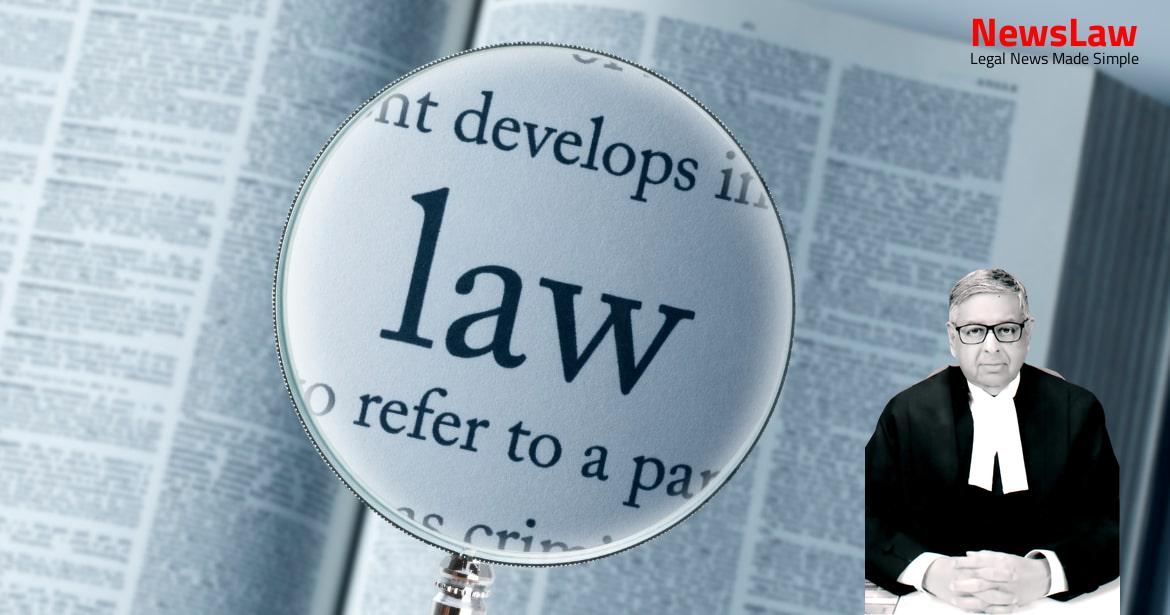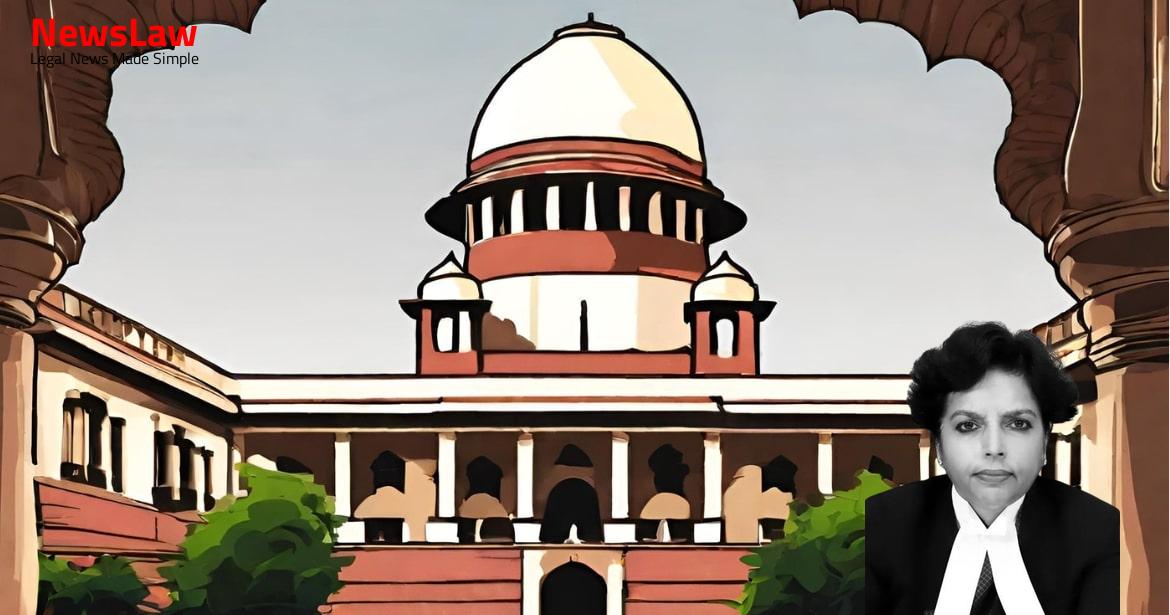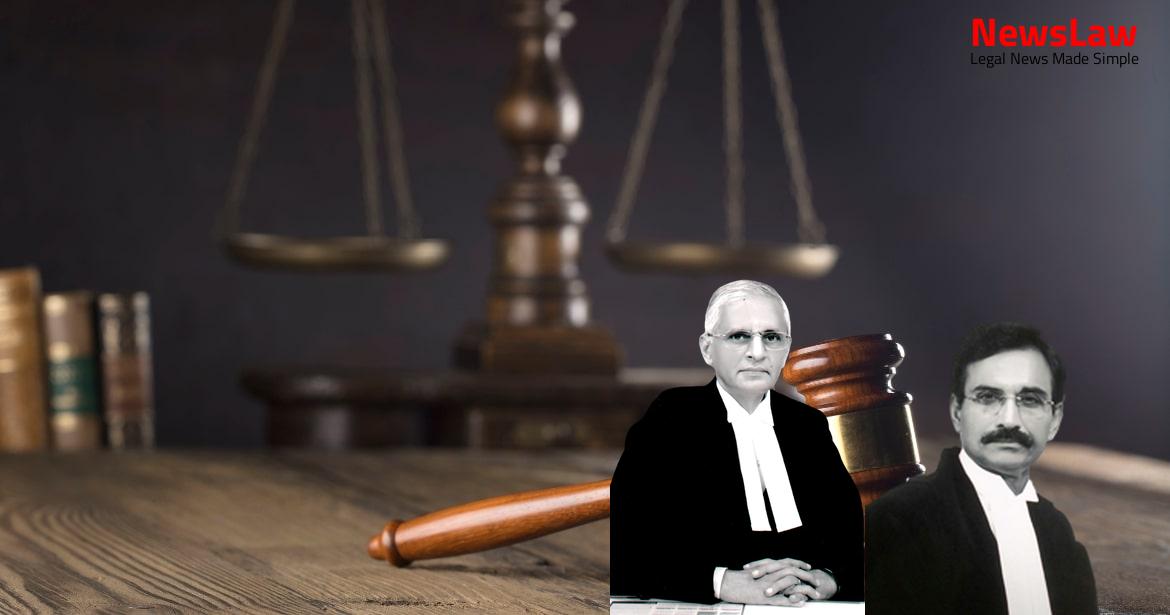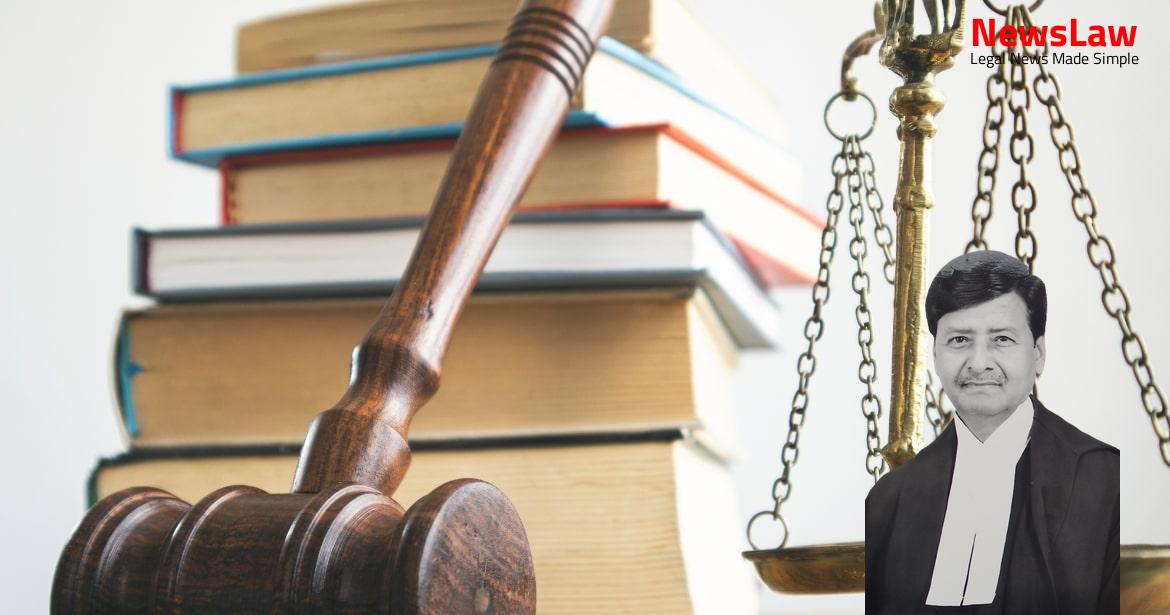In the recent legal battle between the National Investigation Agency (N.I.A.) and the Shoma Kanti Sen(Appellant), a breakthrough came in the form of bail being granted to the Appellant. This comes after a series of events including the expansion of investigation under Section 120-B, the transfer of the case to N.I.A., and subsequent bail applications before the High Court. Dive into the details of this case where bail was eventually granted to the Appellant despite the serious allegations involved.
Facts
- Applicant’s counsel seeks two weeks time for amendment.
- Violence occurred at Shanivarwada, Pune on 31.12.2017.
- Applicant seeks to add N.I.A. as a party respondent.
- Appellant’s residence was raided on 06.06.2018.
- Appellant not named as an accused in initial FIR.
- Scope of investigation expanded to include Section 120-B of the 1860 Code.
- N.I.A. has taken over the investigation, requiring Division bench consideration.
- Appellant detained on 06.06.2018 in connection with FIR no. 04/2018.
- Appellant filed bail application on 13.12.2018 before Sessions Court.
- Investigation transferred to N.I.A. on 24.01.2020.
- Ordered to add N.I.A. as a party respondent.
- Names of accused and absconding accused listed in chargesheet.
- Appellant implicated under various sections of the Indian Penal Code and N.I.A. Act.
- Applications for bail filed before High Court.
- CPI (Maoist) identified as behind conspiracy.
- Statements and chargesheets filed by State Police.
- Protected witness status removed from certain individuals.
- Order passed to place bail application before Division Bench.
- Removal of protected status due to disclosure of witness statements to defense.
- The Sessions Court applied Section 43-D (5) of the 1967 Act to deny bail to the appellant.
- The Additional Sessions Judge reviewed chargesheets from 15.11.2018 and 21.11.2019.
- Bail was rejected for the appellant by the Additional Sessions Judge on 06.11.2019.
Arguments
- The petitioner appealed against the judgment refusing bail, arguing that the relief sought is not eclipsed by the way the prayers were framed.
- The High Court granted bail based on the length of the trial and witnesses yet to be examined, which is not sufficient given the serious allegations against the respondent.
- The Supreme Court outlined considerations for granting bail in non-bailable offenses including the nature of the offense, evidence, accused’s circumstances, witness tampering concerns, and public interest.
- Two cases were cited to support the reasoning: State v. Jagjit Singh and Gurcharan Singh v. State.
- The court highlighted the importance of ‘prima facie true’ evidence in granting bail and the need for appellate courts to understand the basis for bail decisions.
- The court criticized the failure to address threats to witnesses in the case and stressed the duty to consider allegations put forth by the investigating agency.
- The appellant did not specifically pray for bail in the transferred petition, but argued that bail should have been granted based on available evidence.
- The prosecution’s case regarding the appellant does not gain any advantage from the reasoning in the case of Mazhar Khan.
- Emphasis is placed on the gravity of the offenses alleged against the appellant in the context of bail restrictions under Section 43D (5) of the 1967 Act.
- Prima facie ‘test’ for granting bail requires a surface-analysis of probative value of the evidence to satisfy the court of its worth.
- Mr. Nataraj, representing the prosecution, concedes that custody of the appellant is not currently needed for further investigation.
- It is argued that the right of appeal would be lost if the High Court decided the bail question in favor of the appellant-accused without further examination.
- NIA should be allowed to contest the bail plea based on materials from the second supplementary charge-sheet to preserve the prosecution’s right of appeal.
Also Read: Adani Power Rajasthan Ltd. vs. Rajasthan Discoms: Late Payment Surcharge Dispute
Analysis
- The court found that the materials produced do not establish reasonable grounds for believing that the accusations against the appellant under the bail restricting provisions of the 1967 Act are prima facie true.
- The court examined the accusations under Sections 16, 17, 18, 18B, 20, 38, 39, and 40 of the 1967 Act to determine if they are prima facie true based on the available materials.
- Witness statements alleging the appellant’s presence at certain events were noted, but it was found that they do not directly implicate her in specific offenses.
- The court analyzed various letters and documents cited by the prosecution, including financial transactions, messages, and instructions, and concluded that they did not firmly implicate the appellant in terrorist activities.
- The court stated that mere associations or connections with individuals involved in terrorist activities are not sufficient to implicate the appellant in Section 38 of the 1967 Act.
- The court considered the appellant’s age, ailments, and the lengthy detention period while assessing the bail plea.
- The court observed that the delay in trial alone cannot be grounds for granting bail in serious offenses.
- The court highlighted the difference in standards for bail under the Act compared to other special statutes.
- The court discussed previous judgments related to bail conditions and the importance of considering the constitutional right to liberty.
- The court noted the need for thorough analysis before implicating an individual in terrorist activities under the Act.
- Appellant’s counsel relied on the case of KA Najeeb but the argument lacks depth and substance.
- Judgment of State of Haryana vs. Basti Ram was cited.
- Case of Gurwinder Singh was referenced, where the judgment of KA Najeeb was distinguished on facts.
- The court’s findings while granting or refusing bail are tentative and do not affect the merit of the case.
- Long periods of incarceration can be a valid reason for granting bail despite bail-restricting provisions.
- Reasons for granting bail are different from discussing the merits of the case.
- Special provisions for bail applications under the NIA Act and MCOC Act have specific court procedural requirements.
- The court must be satisfied with reasonable grounds that the accusation against the accused is prima facie true.
- The satisfaction needed for bail under the NIA Act is different from that under other special enactments like TADA.
- To qualify as a terrorist act under the statute, the act must have the intent to threaten the unity, integrity, security, economic security, or sovereignty of India or to strike terror in people.
- High quality counterfeit Indian currency is defined as counterfeit currency that imitates or compromises key security features as specified.
- The terrorist act includes actions defined in treaties specified in the Second Schedule.
- The term ‘public functionary’ refers to constitutional authorities or functionaries notified by the Central Government.
- The court’s satisfaction regarding the likelihood of not committing an offence on bail pertains only to offences under the Act and not any other offence.
- For an act to be considered a terrorist act, it must be carried out through specified means outlined in the legislation such as using explosives, causing death or injuries, disruption of essential supplies or services, or damaging properties related to the defense of India.
- The appellant is charged under the 1967 Act for committing terrorist acts or acts connected to terrorism.
- Section 15 of the 1967 Act outlines the parameters of a terrorist act including the use of various substances or means to threaten the safety and security of individuals or properties.
- Observations on nature of allegations against the individual are only prima facie views
- Future course of prosecution depends on framing of charges and evidence in trial
- Composite effect of delay in framing charge, period of detention, nature of allegations, materials available, age, and medical condition considered
- Despite pending chargesheets, individual granted bail due to factors mentioned
Also Read: Legal Analysis: Ownership Dispute and Validity of Will Deed
Decision
- The appeal is allowed and the Criminal Miscellaneous Petition is disposed of.
- The appellant will be released on bail under conditions set by the Special Court.
- Conditions include not leaving Maharashtra without permission, surrendering passport, informing Investigating Officer of address, using one mobile number, keeping phone active and GPS on at all times, reporting to the Police Station every fortnight.
- If any conditions are breached, prosecution can seek cancellation of bail directly from the Special Court without involving the higher court.
Case Title: SHOMA KANTI SEN Vs. THE STATE OF MAHARASHTRA (2024 INSC 269)
Case Number: Crl.A. No.-002595-002595 / 2023



